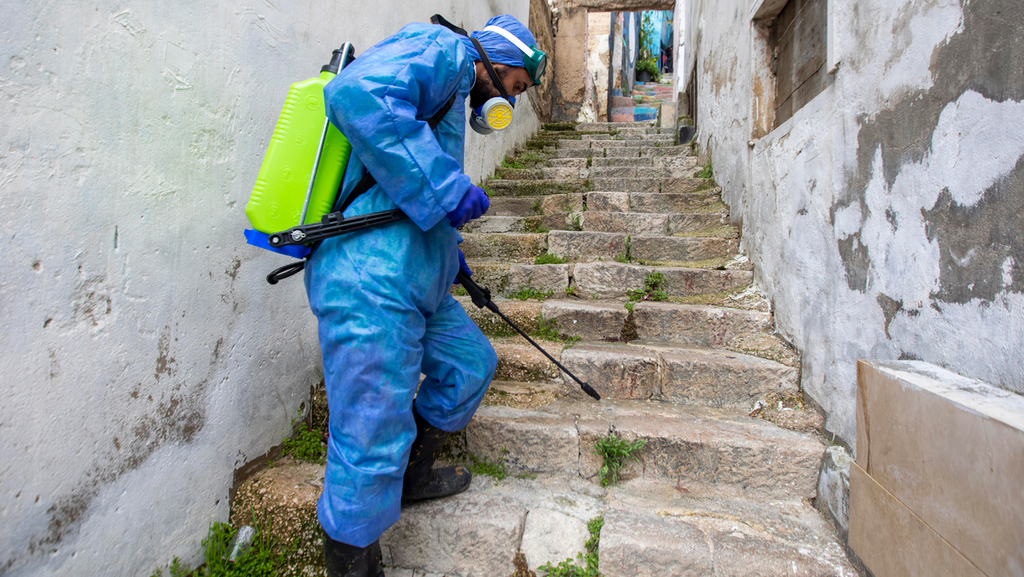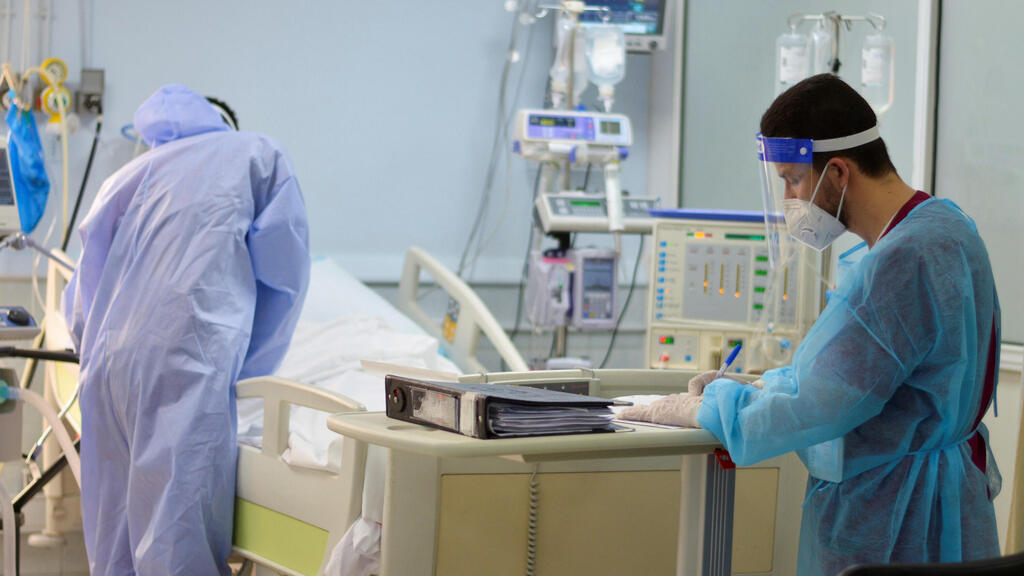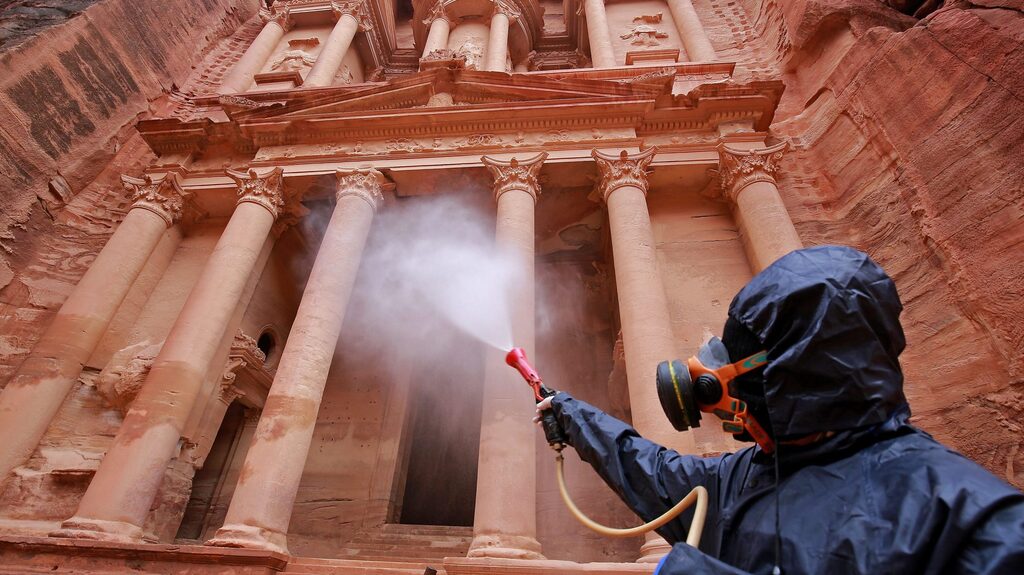Clerks at the largest cemetery in Jordan barely have a moment to themselves as people rush to pay for graves to bury relatives amid a record surge of deaths from COVID-19.
The cemetery on the outskirts of the capital saw at least 50 burials on Tuesday, a day after the health ministry announced 109 COVID-19 deaths, the kingdom's highest daily tally.
3 View gallery


Sanitation worker sprays disinfectant against coronavirus in Amman, Jordan
(Photo: EPA)
"We have no time to scratch our heads," said Ahmad Jaber as he completed a 50 dinar ($70) invoice for a plot at the Amman municipal cemetery while bereaved relatives waited in line.
The surge in the last two months, blamed on the fast spread of the variant first identified in Britain, has put Jordan's infections and deaths above most of its neighbors and reverses months of success in containing the outbreak.
The government, which says there are 3,334 COVID-19 patients in hospital, is facing a crisis with some wards at capacity, especially in the capital and surrounding provinces where over 60% of the country's 10 million population live.
"We hope the daily infections don't continue this way, otherwise there will be a real problem in the availability of isolation rooms and intensive care units," said Fawzi Hammouri, the head of Jordan's private hospital association.
Coronavirus wards in 27 private hospitals are now at 90% occupancy and intensive care units are at 78% capacity in and around the capital.
Private hospitals are considering scrapping non-urgent procedures and outpatient clinics, steps taken by public hospitals earlier this month, to create more space.
Some officials have suggested the government should use sports stadiums, refurbish old hospitals or set up beds in schools.
3 View gallery


Medical staff members assist a patient suffering from COVID-19 in an intensive care unit at a hospital in Amman, Jordan
(Photo: Reuters)
"The infections are heading for more increases," said Interior Minister and acting Health Minister Mazen al Faraya.
To spare the economy, Prime Minister Bisher al Khasawneh has so far avoided a two-week lockdown recommended by medics.
The government earlier this month extended a night curfew, ordered a full Friday lockdown and imposed stricter penalties on violators of social distancing rules.
At Jordan University hospital, a 100-bed ward for COVID-19 patients has been full for the past week and medics struggle to keep those patients separate from others with serious ailments, said hospital director Islam Massad.
"I hope we can control this and numbers fall because the situation is getting very difficult," said Ahmad Saafeen, head of the emergency ward.
The situation is slightly better outside big towns, where intensive care unit capacity is at 30% to 50%, according to official data.
3 View gallery


Sanitation worker sprays disinfectant against coronavirus in Petra, Jordan
(Photo: Gettyimages)
But trust in the public health service is at a record low with gross negligence exposed after nine people, mostly COVID-19 patients, died earlier this month when medics ignored depleted oxygen supplies.
The scandal means Khasawneh is facing his toughest challenge since being appointed last October, politicians say.
Anger over the crisis, which has pushed unemployment to a record 24%, sent hundreds of demonstrators on to the streets earlier this month, defying the curfew and calling for Khasawneh's removal.

